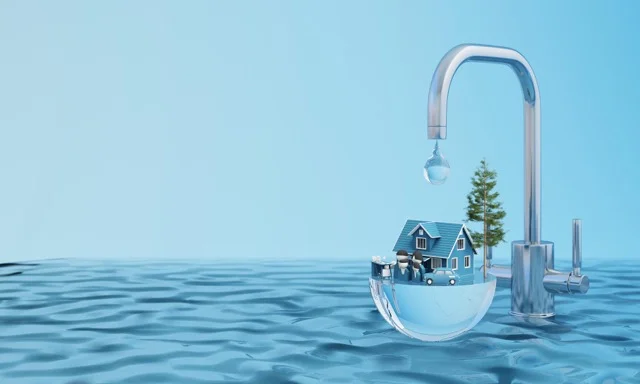The Definitive Guide for Reclaim Waste
The Definitive Guide for Reclaim Waste
Blog Article
The Definitive Guide to Reclaim Waste
Table of ContentsReclaim Waste - QuestionsA Biased View of Reclaim WasteAbout Reclaim WasteWhat Does Reclaim Waste Mean?The 6-Minute Rule for Reclaim Waste
Residential sewage waste refers to the waste and items from a domestic septic container. The proper monitoring and disposal of domestic sewer waste require liquid waste to be moved to a sewer treatment plant where the correct methods and devices are used to purify and dispose of waste.
Industrial waste often includes prospective hazards, such as flammable products or a combination of liquid and solid waste items, and calls for a more innovative and detailed disposal process. The disposal of business waste typically entails the purification of waste prior to transportation to guarantee risk-free and correct disposal. Hazardous waste is created from by-products and overflow of commercial procedures and manufacturing.
This sort of waste can not use the same sewage administration transport or procedures as septic or business fluids. The hazardous waste monitoring procedure calls for the inspection and testing of liquid waste before it undergoes the disposal process (liquid waste disposal). Drainage waste is the fluid waste that comes from drainage and excess stormwater in extremely inhabited areas or cities
Overflow waste can cause contamination and flooding if not handled correctly. Making sure appropriate waste monitoring can protect against calamities and minimize ecological harm.
Unknown Facts About Reclaim Waste
Contact PROS Providers today to learn more about our waste management and disposal solutions and the appropriate methods to take care of the liquid waste you create.
(https://pubhtml5.com/homepage/kwjac/)Do you recognize what occurs to your water when you end, flush the commode or drain pipes the cleaning maker? No? Well, it's worth understanding. This supposed 'wastewater' is not just an important resource yet, after treatment, will be launched to our land, rivers or the sea. Made use of water from toilets, showers, bathrooms, kitchen area sinks, washings and commercial processes is called wastewater.

water utilized to cool equipment or tidy plant and tools). Stormwater, a kind of wastewater, is overflow that moves from farming and metropolitan locations such as roofings, parks, gardens, roadways, courses and gutters into stormwater drains, after rainfall. Stormwater flows without treatment straight to neighborhood creeks or rivers, eventually getting to the sea.
The 5-Minute Rule for Reclaim Waste
In Queensland, most wastewater is treated at sewage treatment plants. Wastewater is moved from residential or commercial websites through a system of drains and pump terminals, called sewage reticulation, to a sewer therapy plant. City governments develop, preserve and operate most sewage therapy plants. Operators are licensed under the Environmental Management Act 1994 to discharge cured wastewater at an acceptable ecological standard right into waterways.
The Department of Natural Resources encourages city governments regarding managing, operating and keeping sewage systems and treatment plants. In unsewered areas, city governments might need householders to mount specific or family sewage therapy systems to treat domestic wastewater from bathrooms, kitchen areas, shower rooms and laundries. The Department of Natural Resources authorizes making use of home systems when they are proven to be reliable.
In some brand-new class, treatment of some stormwater to eliminate litter, sand and crushed rock has started making use of gross contaminant catches. Wastewater treatment takes place in four phases: Removes solid issue.
Makes use of tiny living organisms understands as micro-organisms to break down and remove staying liquified wastes and fine particles. Micro-organisms and wastes are integrated in the sludge.
The smart Trick of Reclaim Waste That Nobody is Talking About
Nutrient elimination is not readily available at all sewer treatment plants because it requires pricey specialized devices. Clear liquid effluent produced after therapy might still consist of disease-causing micro-organisms - liquid waste removal.

This typically implies wastewater has to be dealt with or from this source impurities gotten rid of before it can be released to waterways. Most wastewater moves right into the sewerage system. Under the Act, city governments provide approvals and permits for ecologically relevant tasks (Ages) entailing wastewater launches that might have a neighborhood effect. The department carries out approvals and permits to Ages entailing wastewater launches that might have a local or statewide impact.
Indicators on Reclaim Waste You Need To Know
Tracking supplies valid details concerning water quality and can confirm that licence conditions are being fulfilled. The details obtained with monitoring gives the basis for making water high quality decisions.
Report this page